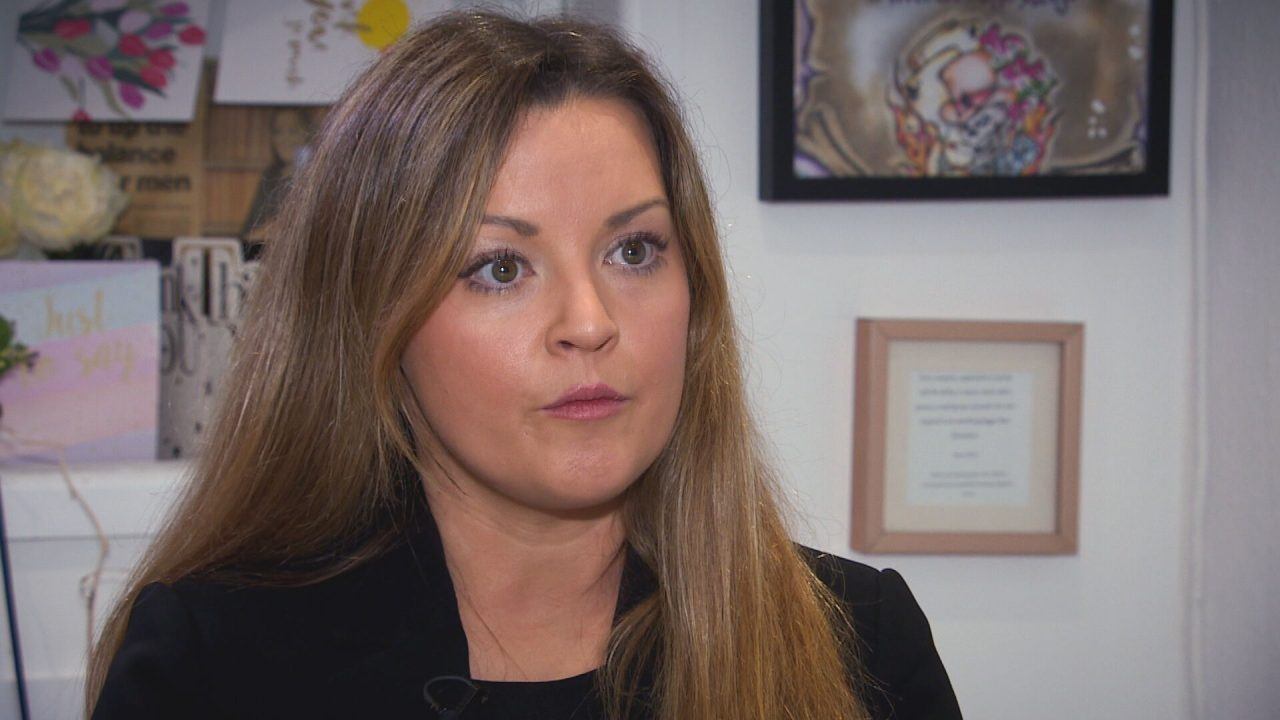It has been five years since coercive control was made a criminal offence in Scotland.
The Domestic Abuse (Scotland) Act 2018 was then hailed as a world leading piece of legislation by the Scottish Government.
Coercive control is a form of manipulation designed to create dependency.
Perpetrators threaten, intimidate, exploit and monitor the movements of their victims.
When the Domestic Abuse (Scotland) Act 2018 was introduced, Humza Yousaf, who was justice secretary at the time, said “this legislation is groundbreaking, it’s historic, it’s being looked at by other countries around the world”.
This article contains descriptions of domestic abuse, sexual assault, and suicide.
Scotland Tonight has obtained exclusive information that shows 1,333 charges relating to coercive control were reported to Scotland’s Crown Office and Procurator Fiscal Service between April and December last year.
In the lead up to then (April 2019 to April 2023), a total of 6,640 charges were reported.
‘The whole justice system needs to match up’
Lynn Harris, who founded abuse and trauma group, No Feart, says when the law was brought in it was a huge step forward in recognising that domestic abuse isn’t just about physical violence.
She said: “You can have a very, very strong person who is independent and successful in every area of their life be broken down into something that’s unrecognisable.
“They lose jobs, they lose their sanity and it can have a long term physical effect on their health.

“As they’re abusing you, they blame you for causing them to do it. You know, it’s very insidious as we know, and that’s where the challenge is.
“It’s working very patiently with the victim and helping them get their head around it really.”
Lynn says although the legislation has helped victims to a degree, there is still a big misunderstanding from authorities and society as to what coercive control actually is.
“What I mostly see is, is the police being very empathetic with victims and they really believe victims. I see that it’s really frustrating for them when it goes to the next level and it gets put down in court, it gets thrown out.
“It doesn’t stand in court and they’re left being blamed for everything. But we have a whole justice system that needs to match up.”
‘The legal system is slow – but there has been progress’
Lawyer Melissa Rutherford deals with domestic abuse cases every day. She says it can be challenging for someone to be charged under the legislation.
“I think the legal system is notoriously slow to progress with things, so there has been progress made and I think it’s something to build on and work towards,” she said.
“I think that’s really good news for victims of crime and victims of domestic abuse. It may not be fast enough for everyone’s liking, but it is progress.”
Melissa, like Lynn, believes authorities need to be better trained in coercive control.
“The police need to be trained properly and especially trauma-informed when dealing with victims of crime, because they can quite often still be in the relationship,” she said.

“Intimate domestic abuse is really detrimental to a person’s confidence and their well-being.
“So the police require to be trained and trained well enough to be able to take this information carefully so as not to cause any further harm to these victims.”
Lynn added: “We need more educational courses for frontline services and this comes from the frustration of frontline services themselves.
“They’ve received just some sort of training from what I know and it’s one organisation that’s training.
“I think the judicial system needs to be trained as well, maybe more than they are. There just needs to be confidence and there’s no confidence if there’s no information and no training.’
“My question is, why don’t we all get involved with it? You know, all the services that are out there working day-to-day in the communities with all victims and perpetrators. Let’s get together and see what’s working.”
Work is happening in the community.
No Feart runs a 12-step programme at Men Matter, a men’s mental health and suicide prevention group.
The programme helps men work through trauma and identify abusive behaviours within themselves and others.
“We’ve written programmes that are non gender specific and non-judgmental. It works with perpetrators and victims.
“Coming into the community we’ve picked up perpetrators that wouldn’t otherwise be shown to the services.”

David has been attending the No Feart sessions for weeks. He says when he learnt about coercive control he realised that he had been a victim of it in the past, but that he was also replicating those behaviours himself.
“it was hard to come to terms with, ‘how can I be a victim if I’m doing these things to people?’ I’m no victim. I can’t admit to being a victim because I’m not.”
David says the sessions helped him change his ways and deal with past traumas appropriately.
“My relationships (with my kids) are brilliant. My relationship with my partner is just phenomenal. I couldn’t ask for a better relationship.”
Scotland Tonight asked Police Scotland for an interview but they declined.
In a statement, Detective Chief Superintendent Sam Faulds, head of public protection said: “Coercive and controlling behaviours can start very early in a relationship: stopping a new partner seeing friends, checking their phone, demeaning them.
“These are abusive and can be early signs of attempts to coerce and control.
“Our officers are trained to look beyond physical abuse, to identify coercive and controlling behaviours, disparate incidents which, taken together, provide clear evidence of an abusive relationship.
“Listening to victims is key, hearing their experience is crucial in helping us improve and deliver a service that meets people’s individual needs.”
Dr Emma Forbes, National Lead for Domestic Abuse, COPFS said: “The Crown Office and Procurator Fiscal takes a robust approach to the investigation of domestic abuse, including a presumption in favour of prosecution.
“We recognise that it takes courage for victims to share their experiences of abuse. Prosecutors are working to build victims’ trust, and facilitate their safety through special measures, such as giving evidence away from the accused.
“A key priority for prosecutors is developing our understanding, by listening to victims and on-going training, to better recognise the impact of controlling and coercive behaviour.”
See the full report, Scotland Tonight: Challenging Coercive Control, tonight at 8:30pm on STV and the STV Player.
If you have been affected by any of these issues, help is available through the charity Victim Support Scotland. It has a free support line, on 0800 160 1985 (8am-8pm, Mon-Fri).
Follow STV News on WhatsApp
Scan the QR code on your mobile device for all the latest news from around the country


























